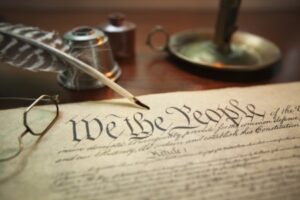
An informed and active citizenry plays a vital role in maintaining a democratic and accountable government. Through the use of public records, citizens are able to hold their elected officials accountable for their actions and ensure that the government remains transparent and open to the public. This, in turn, helps to build trust in government institutions and ensures that the government is operating in the best interests of its citizens.
Public records are an important tool for citizens to monitor and understand the actions of their government. This includes information such as budget and spending documents, meeting minutes, and other important documents related to government operations. These records provide the public with the information they need to assess the performance of their elected officials, track the allocation of taxpayer dollars, and identify potential problems or areas of concern. By having access to this information, citizens are able to hold their government accountable and ensure that it is transparent in its operations.
One of the key benefits of using public records to keep government accountable is that it enables citizens to stay informed about government activities. For example, if citizens are concerned about the allocation of funds for a particular project, they can use public records to research the budget and spending documents related to that project. This allows them to see how their tax dollars are being used, and whether the government is spending them effectively. Additionally, if citizens are interested in learning about a particular policy or issue, they can use public records to find meeting minutes or other documents related to the decision-making process.
Another important benefit of using public records to keep government accountable is that it helps to foster transparency in government operations. Transparency helps to ensure that the government is acting in the best interests of its citizens and is open about its activities. By making public records readily available, the government sends a clear message that it is committed to being open and accountable to its citizens. This, in turn, helps to build trust in government institutions, and promotes a more democratic and participatory form of governance.
In addition to helping to hold government accountable and promote transparency, the use of public records also provides citizens with a greater voice in the political process. When citizens are informed and engaged, they are more likely to participate in the political process and make their voices heard. For example, if citizens are concerned about a particular issue or policy, they can use public records to learn more about the issue and then use that information to make their case to elected officials. This can help to shape policy decisions and ensure that the government is responsive to the needs and concerns of its citizens.
The use of public records by active and informed citizens plays a vital role in maintaining a democratic and accountable government. By providing citizens with the information they need to hold their elected officials accountable, promoting transparency in government operations, and giving citizens a greater voice in the political process, the use of public records helps to ensure that the government is working in the best interests of its citizens. By being informed and engaged, citizens can help to build a more democratic and participatory form of government, and promote greater trust in government institutions.

